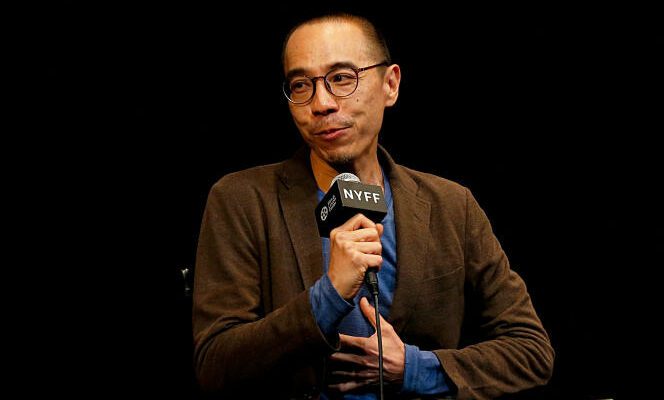LETTER FROM CHIANG MAI
A house on stilts like a long wooden ship, which sails through the forest and the swirls of greenery: this is where lives and works, 30 minutes by car from Chiang Mai, the city in northern Thailand, the Thai filmmaker and artist Apichatpong Weerasethakul – or “Joe”, according to the widespread practice in this country of preferring nicknames to extended surnames. His desk, a large wooden table, is installed in the middle of the “bridge”, perpendicular to the railing which runs on either side of the central building: when he works there, he faces a well of plants and has his back to the glazed room where he stores his hard drives and what fears humidity. His dog, a Boston Terrier named Dracula – “ I give monster names to my dogs he said, there was a “Godzilla” And a “King Kong” – slowly moving along the weathered wooden slats. A giant dead leaf, yellow and petrified, falls with a thud on the roof – it’s the dry season, the Thai “winter”. But for some species of plants only, others glow an insolent green.
Joe, therefore, in his home, it is already a whole universe: nature, its noises, the mysterious ballet of ghosts or gods, these past and future lives that populate his films or his video installations and tell the hidden upheavals souls, of a country or an era. And then on one wall, a triangular painting painted by a young local artist showing men and wolves in uniforms, machine guns in their hands. Thailand, maybe? Unless it is neighboring Burma, in the midst of civil war, whose refugees and dissidents are innumerable in Chiang Mai.
Joe, in this month of February, returns from a country in South Asia, where he spent a fortnight laying the groundwork for what should become his next film. The director went back to work on a synopsis written ten years ago, in which Jenjira, the middle-aged, partially disabled Thai woman character who appears in all of his films in Thailand, makes a pilgrimage to a sacred Buddhist mountain.
Unprecedented mobilization of Thai youth
” I feel like it’s time for me to make a film again. I’ve been doing some pretty political stuff in the last two years at my facilities. “, he explains. When the pandemic broke out in the spring of 2020, the postproduction of Memoria, his last film shot in Colombia, for which he will receive the jury prize at Cannes in 2021, cannot be done as planned in Mexico. Stuck in Thailand, the director then witnessed the unprecedented mobilization of Thai youth, from the summer of 2020, against the monarchy: the new generations took to the streets in Bangkok and submitted a dozen complaints relating to the interference of the Palace in political life – and in particular so that the royal sanction of coups d’etat ceases. It’s an earthquake. But the generals’ government is responding with fierce repression using lèse-majesté and anti-sedition laws – nearly 1,800 people have been charged or convicted so far since the summer 2020 protests.
You have 52.26% of this article left to read. The following is for subscribers only.
